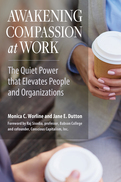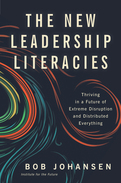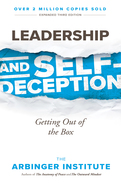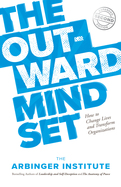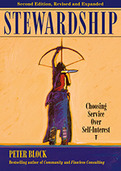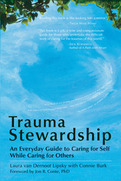Search Results: "Seeing Red Cars"
Results 217-222 of 246
Caring Is a Competitive Advantage
Suffering in the workplace can rob our colleagues and coworkers of humanity, dignity, and motivation and is an unrecognized and costly drain on organizational potential. Marshaling evidence from two decades of field research, scholars and consultants Monica Worline and Jane Dutton show that alleviating such suffering confers measurable competitive advantages in areas like innovation, collaboration, service quality, and talent attraction and retention. They outline four steps for meeting suffering with compassion and show how to build a capacity for compassion into the structures and practices of an organization—because ultimately, as they write, “Compassion is an irreplaceable dimension of excellence for any organization that wants to make the most of its human capabilities.”
Suffering in the workplace can rob our colleagues and coworkers of humanity, dignity, and motivation and is an unrecognized and costly drain on organizational potential. Marshaling evidence from two decades of field research, scholars and consultants Monica Worline and Jane Dutton show that alleviating such suffering confers measurable competitive advantages in areas like innovation, collaboration, service quality, and talent attraction and retention. They outline four steps for meeting suffering with compassion and show how to build a capacity for compassion into the structures and practices of an organization—because ultimately, as they write, “Compassion is an irreplaceable dimension of excellence for any organization that wants to make the most of its human capabilities.”
Over the next decade, today's connected world will be explosively more connected. Anything that can be distributed will be distributed: workforces, organizations, supply webs, and more. The tired practices of centralized organizations will become brittle in a future where authority is radically decentralized. Rigid hierarchies will give way to liquid structures. Most leaders—and most organizations—aren't ready for this future. Are you?
It's too late to catch up, but it's a great time to leapfrog. Noted futurist Bob Johansen goes beyond skills and competencies to propose five new leadership literacies—combinations of disciplines, practices, and worldviews—that will be needed to thrive in a VUCA world of increasing volatility, uncertainty, complexity, and ambiguity. This book shows how to (1) forecast likely futures so you can “look back” and make sure you're prepared now for the changes to come, (2) use low-risk gaming spaces to work through your concerns about the future and hone your leadership skills, (3) lead shape-shifting organizations where you can't just tell people what to do, (4) be a dynamic presence even when you're not there in person, and (5) keep your personal energy high and transmit that energy throughout your organization.
This visionary book provides a vivid description of the ideal talent profile for future leaders. It is written for current, rising star, and aspiring leaders; talent scouts searching for leaders; and executive coaches seeking a fresh view of how leaders will need to prepare. To get ready for this future, we will all need new leadership literacies.
It's too late to catch up, but it's a great time to leapfrog. Noted futurist Bob Johansen goes beyond skills and competencies to propose five new leadership literacies—combinations of disciplines, practices, and worldviews—that will be needed to thrive in a VUCA world of increasing volatility, uncertainty, complexity, and ambiguity. This book shows how to (1) forecast likely futures so you can “look back” and make sure you're prepared now for the changes to come, (2) use low-risk gaming spaces to work through your concerns about the future and hone your leadership skills, (3) lead shape-shifting organizations where you can't just tell people what to do, (4) be a dynamic presence even when you're not there in person, and (5) keep your personal energy high and transmit that energy throughout your organization.
This visionary book provides a vivid description of the ideal talent profile for future leaders. It is written for current, rising star, and aspiring leaders; talent scouts searching for leaders; and executive coaches seeking a fresh view of how leaders will need to prepare. To get ready for this future, we will all need new leadership literacies.
This third edition of an international bestseller—over 2 million copies sold worldwide and translated into 33 languages—details how its powerful insights on motivation, conflict, and collaboration can benefit organizations as well as individuals.
Since its original publication in 2000, Leadership and Self-Deception has become an international word-of-mouth phenomenon. Rather than tapering off, it sells more copies every year. The book's central insight—that the key to leadership lies not in what we do but in who we are—has proven to have powerful implications not only for organizational leadership but in readers' personal lives as well.
Leadership and Self-Deception uses an entertaining story everyone can relate to about a man facing challenges at work and at home to expose the fascinating ways that we blind ourselves to our true motivations and unwittingly sabotage the effectiveness of our own efforts to achieve happiness and increase happiness. We trap ourselves in a “box” of endless self-justification. Most importantly, the book shows us the way out. Readers will discover what millions already have learned—how to consistently tap into and act on their innate sense of what's right, dramatically improving all of their relationships.
This third edition includes new research about the self-deception gap in organizations and the keys to closing this gap. The authors offer guidance for how to assess the in-the-box and out-of-the-box mindsets in yourself and in your organization. It also includes a sample of Arbinger's latest bestseller, The Outward Mindset.
Since its original publication in 2000, Leadership and Self-Deception has become an international word-of-mouth phenomenon. Rather than tapering off, it sells more copies every year. The book's central insight—that the key to leadership lies not in what we do but in who we are—has proven to have powerful implications not only for organizational leadership but in readers' personal lives as well.
Leadership and Self-Deception uses an entertaining story everyone can relate to about a man facing challenges at work and at home to expose the fascinating ways that we blind ourselves to our true motivations and unwittingly sabotage the effectiveness of our own efforts to achieve happiness and increase happiness. We trap ourselves in a “box” of endless self-justification. Most importantly, the book shows us the way out. Readers will discover what millions already have learned—how to consistently tap into and act on their innate sense of what's right, dramatically improving all of their relationships.
This third edition includes new research about the self-deception gap in organizations and the keys to closing this gap. The authors offer guidance for how to assess the in-the-box and out-of-the-box mindsets in yourself and in your organization. It also includes a sample of Arbinger's latest bestseller, The Outward Mindset.
The Outward Mindset
2019
The new edition of an international bestseller helps individuals and organizations shift to a new mindset that will improve performance, spark collaboration, accelerate innovation, and make your life and the lives of everyone around you better.
Without even being aware of it, many of us operate from an inward mindset, a single-minded focus on our own goals and objectives. This book points out the many ways, some quite subtle and deceptive, that this mindset invites tension and conflict. But incredible things happen when people switch to an outward mindset. They intuitively understand what coworkers, colleagues, family, and friends need to be successful and happy. Their organizations thrive, and astonishingly, by focusing on others they become happier and more successful themselves! This new mindset brings about deep and far-reaching changes.
The Outward Mindset presents compelling true stories to illustrate the gaps that individuals and organizations typically experience between their actual inward mindsets and their needed outward mindsets. And it provides simple yet profound guidance and tools to help bridge this mindset gap. This new edition includes a new preface, updated case studies, and new material covering Arbinger's latest research on mindsets. In the long run, changing negative behavior without changing one's mindset doesn't last—the old behaviors always reassert themselves. But changing the mindset that causes the behavior changes everything.
Without even being aware of it, many of us operate from an inward mindset, a single-minded focus on our own goals and objectives. This book points out the many ways, some quite subtle and deceptive, that this mindset invites tension and conflict. But incredible things happen when people switch to an outward mindset. They intuitively understand what coworkers, colleagues, family, and friends need to be successful and happy. Their organizations thrive, and astonishingly, by focusing on others they become happier and more successful themselves! This new mindset brings about deep and far-reaching changes.
The Outward Mindset presents compelling true stories to illustrate the gaps that individuals and organizations typically experience between their actual inward mindsets and their needed outward mindsets. And it provides simple yet profound guidance and tools to help bridge this mindset gap. This new edition includes a new preface, updated case studies, and new material covering Arbinger's latest research on mindsets. In the long run, changing negative behavior without changing one's mindset doesn't last—the old behaviors always reassert themselves. But changing the mindset that causes the behavior changes everything.
Stewardship
2013
One of the most provocative and revolutionary books written on leadership, business, and organizational design, Stewardship remains just as relevant, even twenty years later, to transforming our organizations for the common good of the wider community.
We still face the challenge of fostering ownership and accountability throughout our organizations. Despite all the evidence calling for profound change, most organizations still rely on patriarchy and control as their core form of governance. The result is that they stifle initiative and spirit and alienate people from the work they do. This in the face of an increasing need to find ways to be responsive to customers and the wider community.
Peter Block insists that what is required is a dramatic shift in how we distribute power, privilege, and the control of money. “Stewardship,” he writes, “means giving people at the bottom and the boundaries of the organization choice over how to serve a customer, a citizen, a community. It is the willingness to be accountable for the well-being of the larger organization by operating in service, rather than in control, of those around us.”
Block has revised and updated the book throughout, including a new introduction addressing what has changed—and what hasn't—in the twenty years since the book was published and a new chapter on applying stewardship to the common good of the wider community. He covers both the theory of stewardship (in particular how it ameliorates the shortcomings of traditional leadership) and the practice (how it transforms every function and department for the better). And he offers tactical advice as well on gearing up to implement these reforms.
We still face the challenge of fostering ownership and accountability throughout our organizations. Despite all the evidence calling for profound change, most organizations still rely on patriarchy and control as their core form of governance. The result is that they stifle initiative and spirit and alienate people from the work they do. This in the face of an increasing need to find ways to be responsive to customers and the wider community.
Peter Block insists that what is required is a dramatic shift in how we distribute power, privilege, and the control of money. “Stewardship,” he writes, “means giving people at the bottom and the boundaries of the organization choice over how to serve a customer, a citizen, a community. It is the willingness to be accountable for the well-being of the larger organization by operating in service, rather than in control, of those around us.”
Block has revised and updated the book throughout, including a new introduction addressing what has changed—and what hasn't—in the twenty years since the book was published and a new chapter on applying stewardship to the common good of the wider community. He covers both the theory of stewardship (in particular how it ameliorates the shortcomings of traditional leadership) and the practice (how it transforms every function and department for the better). And he offers tactical advice as well on gearing up to implement these reforms.
Trauma Stewardship
2009
This beloved bestseller—over 180,000 copies sold—has helped caregivers worldwide keep themselves emotionally, psychologically, spiritually, and physically healthy in the face of the sometimes overwhelming traumas they confront every day.
A longtime trauma worker, Laura van Dernoot Lipsky offers a deep and empathetic survey of the often-unrecognized toll taken on those working to make the world a better place. We may feel tired, cynical, or numb or like we can never do enough. These, and other symptoms, affect us individually and collectively, sapping the energy and effectiveness we so desperately need if we are to benefit humankind, other living things, and the planet itself.
In Trauma Stewardship, we are called to meet these challenges in an intentional way. Lipsky offers a variety of simple and profound practices, drawn from modern psychology and a range of spiritual traditions, that enable us to look carefully at our reactions and motivations and discover new sources of energy and renewal. She includes interviews with successful trauma stewards from different walks of life and even uses New Yorker cartoons to illustrate her points.
“We can do meaningful work in a way that works for us and for those we serve,” Lipsky writes. “Taking care of ourselves while taking care of others allows us to contribute to our societies with such impact that we will leave a legacy informed by our deepest wisdom and greatest gifts instead of burdened by our struggles and despair.”
A longtime trauma worker, Laura van Dernoot Lipsky offers a deep and empathetic survey of the often-unrecognized toll taken on those working to make the world a better place. We may feel tired, cynical, or numb or like we can never do enough. These, and other symptoms, affect us individually and collectively, sapping the energy and effectiveness we so desperately need if we are to benefit humankind, other living things, and the planet itself.
In Trauma Stewardship, we are called to meet these challenges in an intentional way. Lipsky offers a variety of simple and profound practices, drawn from modern psychology and a range of spiritual traditions, that enable us to look carefully at our reactions and motivations and discover new sources of energy and renewal. She includes interviews with successful trauma stewards from different walks of life and even uses New Yorker cartoons to illustrate her points.
“We can do meaningful work in a way that works for us and for those we serve,” Lipsky writes. “Taking care of ourselves while taking care of others allows us to contribute to our societies with such impact that we will leave a legacy informed by our deepest wisdom and greatest gifts instead of burdened by our struggles and despair.”


